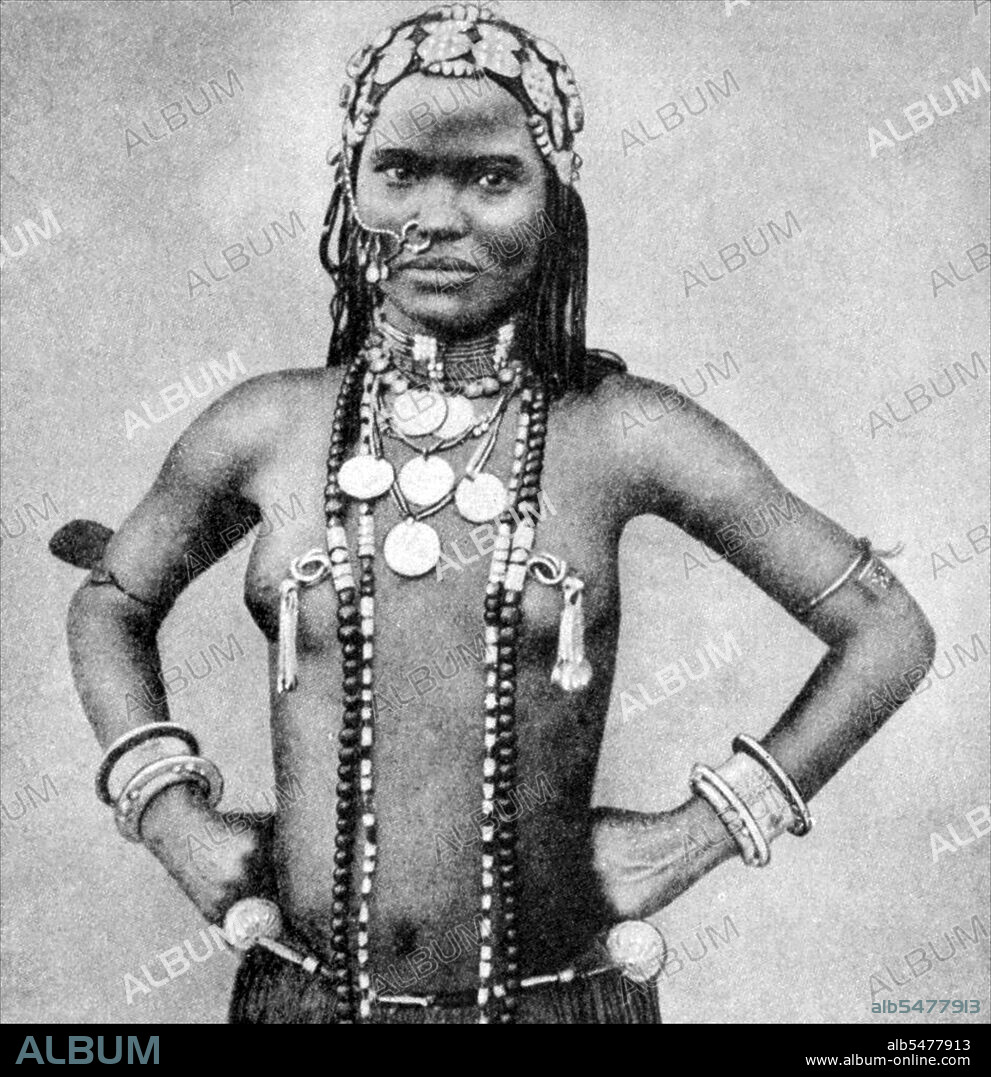alb5477913
Sudan / South Sudan: A Shilluk or Chollo woman, c.1900

|
Add to another lightbox |
|
Add to another lightbox |



Title:
Sudan / South Sudan: A Shilluk or Chollo woman, c.1900
Caption:
The Shilluk, who prefer to be known as Chollo, are a major Nilotic ethnic group of Southern Sudan, living on both banks of the river Nile, in the vicinity of the city of Malakal. The most extensive Chollo area is located on the western bank of the Nile north from Malakal. Before the second Sudanese civil war the Chollo also lived in a number of settlements on the northern bank of the Sobat river. The Shilluk are the third largest minority ethnic group of Southern Sudan, after the Dinka and their neighbors the Nuer. They are led by a chief who is considered divine, and traces his lineage back to the culture hero Nyikang, and whose health is believed to affect that of the nation; Formerly, their society was fairly hierarchical, with castes of royals, nobles, commoners, and slaves. Like most Nilotic groups, cattle-raising formed a large part of their economy; however, agriculture and fishing were more significant than usual, and most were sedentary. Most Chollo have converted to Christianity, while some still follow the traditional religion, and small numbers have converted to Islam.
Credit:
Album / Pictures From History/Universal Images Group
Releases:
Model: No - Property: No
Rights questions?
Rights questions?
Image size:
4125 x 4263 px | 50.3 MB
Print size:
34.9 x 36.1 cm | 13.7 x 14.2 in (300 dpi)
Keywords:
AFRICA • AFRICAN • CHOLLO • ETHNIC GROUP • ETHNIC • SHILLUK • SOUTH SUDAN • SOUTH SUDANESE • SUDAN • SUDANESE
 Pinterest
Pinterest Twitter
Twitter Facebook
Facebook Copy link
Copy link Email
Email

